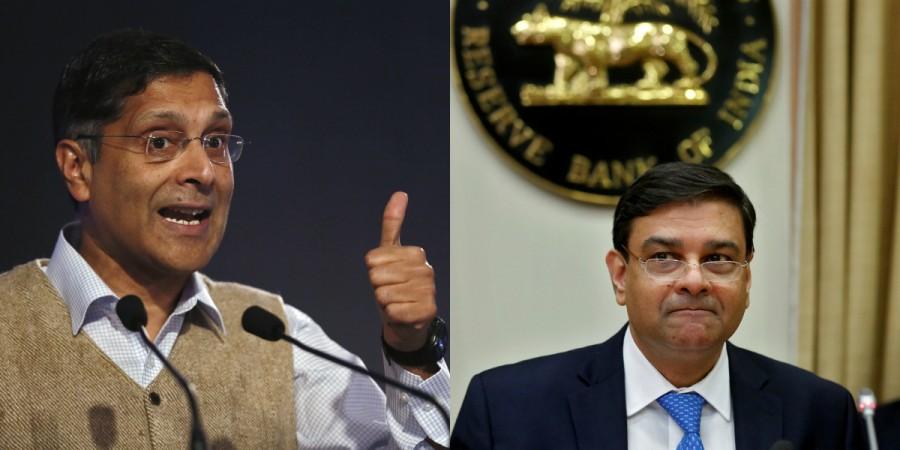
The government's choice of Urjit Patel to succeed Raghuram Rajan as head of the Reserve Bank of India based majorly on his views against some of his predecessor's policies was always going to weigh on his term.
Patel, who took charge as RBI governor on September 4, 2016, resigned on Monday, citing personal reasons at the end of a long-running feud with the Narendra Modi government over several policy issues.
Rajan's term had ended amid Finance Minister Arun Jaitley's repeated attacks on RBI policies that had focused on inflation.
Patel was also facing mounting pressure with Jaitely who made clear his disagreements on several key policy issues. The bank leadership suffered worse attacks from the likes of S Gurumurthy, the independent member on the RBI board.
Though Patel cited personal reasons for his stunning exit days after he weathered extreme pressure at the monetary policy committee meeting, the country's economists were wondering why he had not stepped down earlier.
The real gravity of the situation is evident from Rajan's response to his successor's resignation. Rajan told Times Now that "it is a matter of great concern" that Patel resigned. "I think the government must take extreme care in how it proceeds further in its relations with the RBI."
He called for wiser heads to prevail in the current environment and said the circumstances that led to Patel's resignation have to be reversed.
Referring to the government pressure to convert RBI into a board-governed institution, Rajan said it would be an "extreme change in the nature of the governance of the RBI for the board to become an operational board to make operational decisions".
The board has been conceived as an advisory apparatus and Rajan felt that was appropriate because "the professionals on the RBI took the decisions while the broader public, which was represented on the board, advised" it. "I think the move towards giving the board more operational authority would impinge on the professional management if asked to regulate and supervise."
For this, the board itself would require to be composed of professionals as opposed to the general public, he added.
Patel, as the 24th governor, perhaps, had to weather the worst shock among all governors with the blitzkrieg of demonetisation striking the nation on September 8-9 night of 2016.
Patel's resignation comes at a difficult phase for the Modi government on the heels of the exit of chief economic adviser Arvind Subramanian, who has made a series of damning revelations about the government's actions.
Some economists thought the government's push to redraw the policies on RBI's reserves, monetary policy on banks' capital adequacy, and lenient regulatory approach on non-performing assets was threatening RBI's institutional integrity.
At the last monetary policy committee meeting, Patel indicated that the RBI wanted to maintain nearly 99 per cent of its reserves to maintain a robust balance sheet, some reports suggest. This negated the government demand for releasing a part of the reserves to boost market liquidity.












